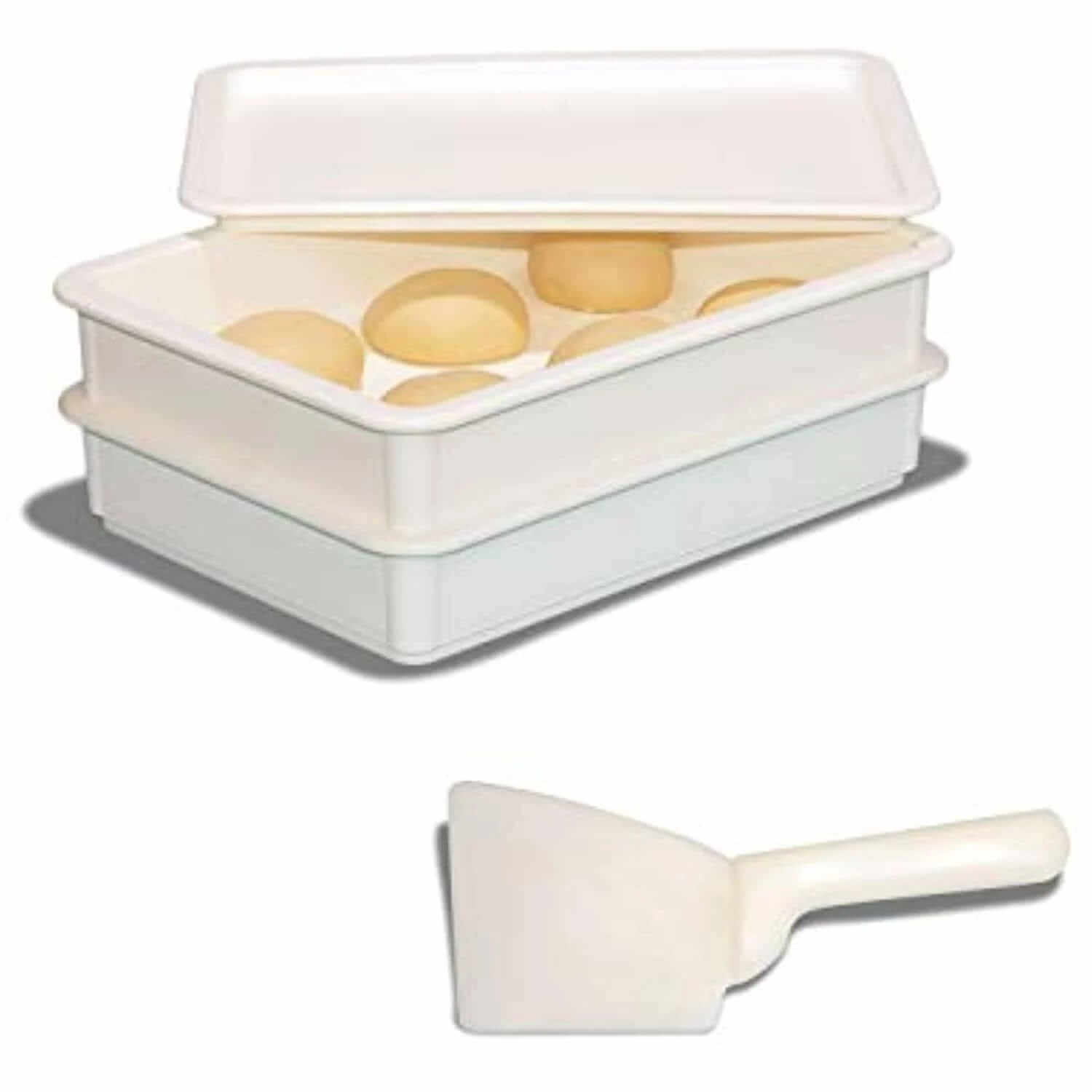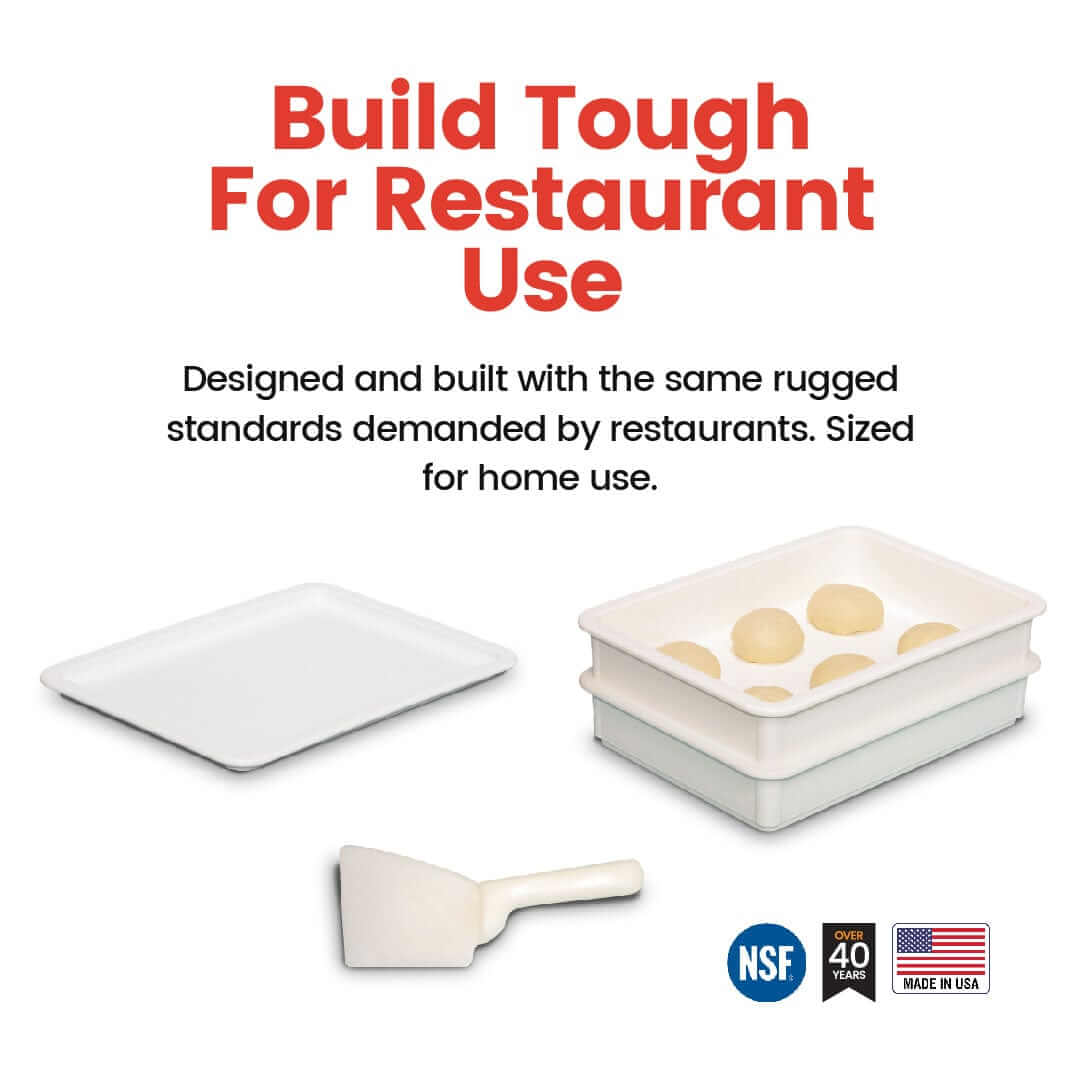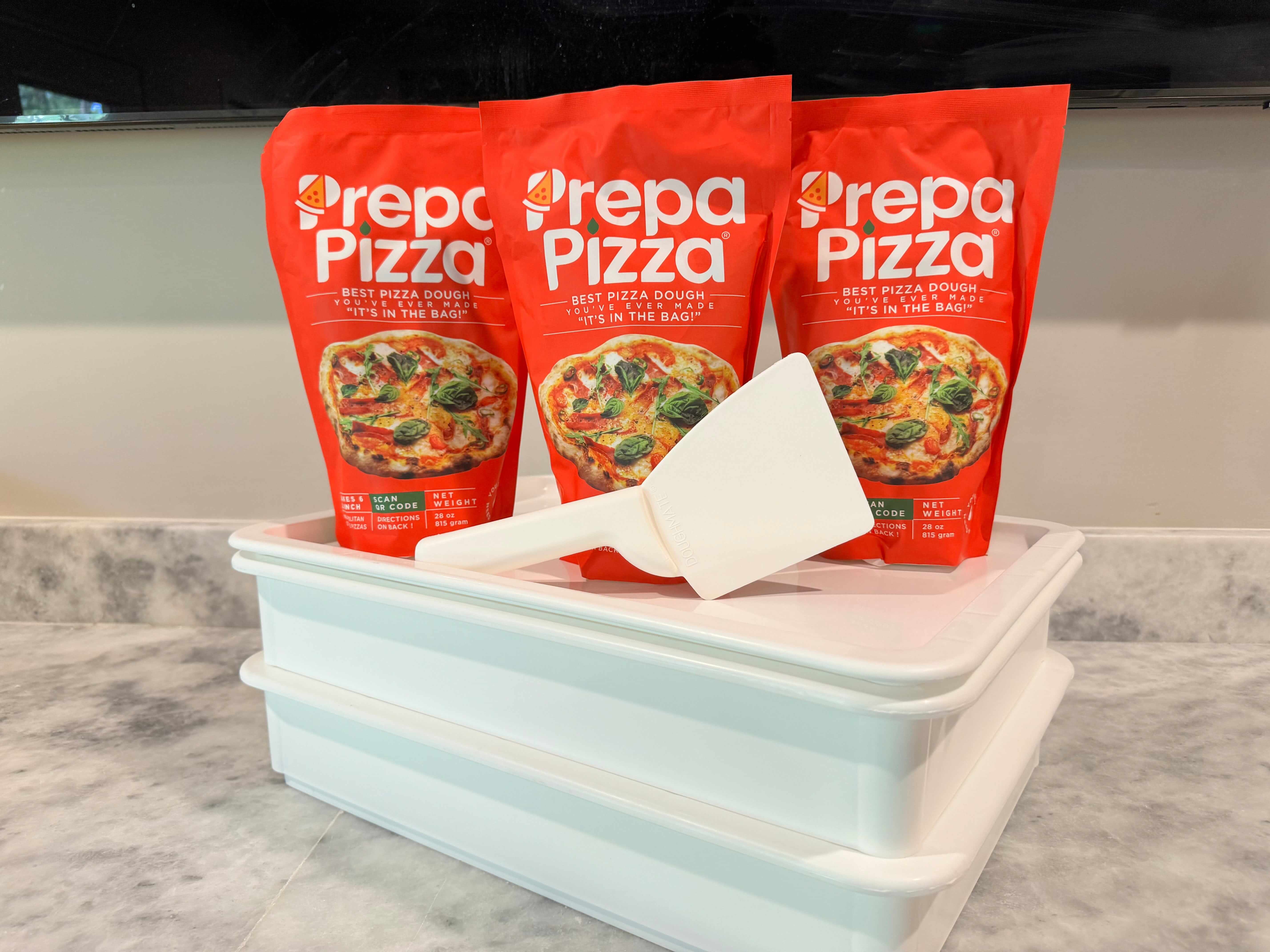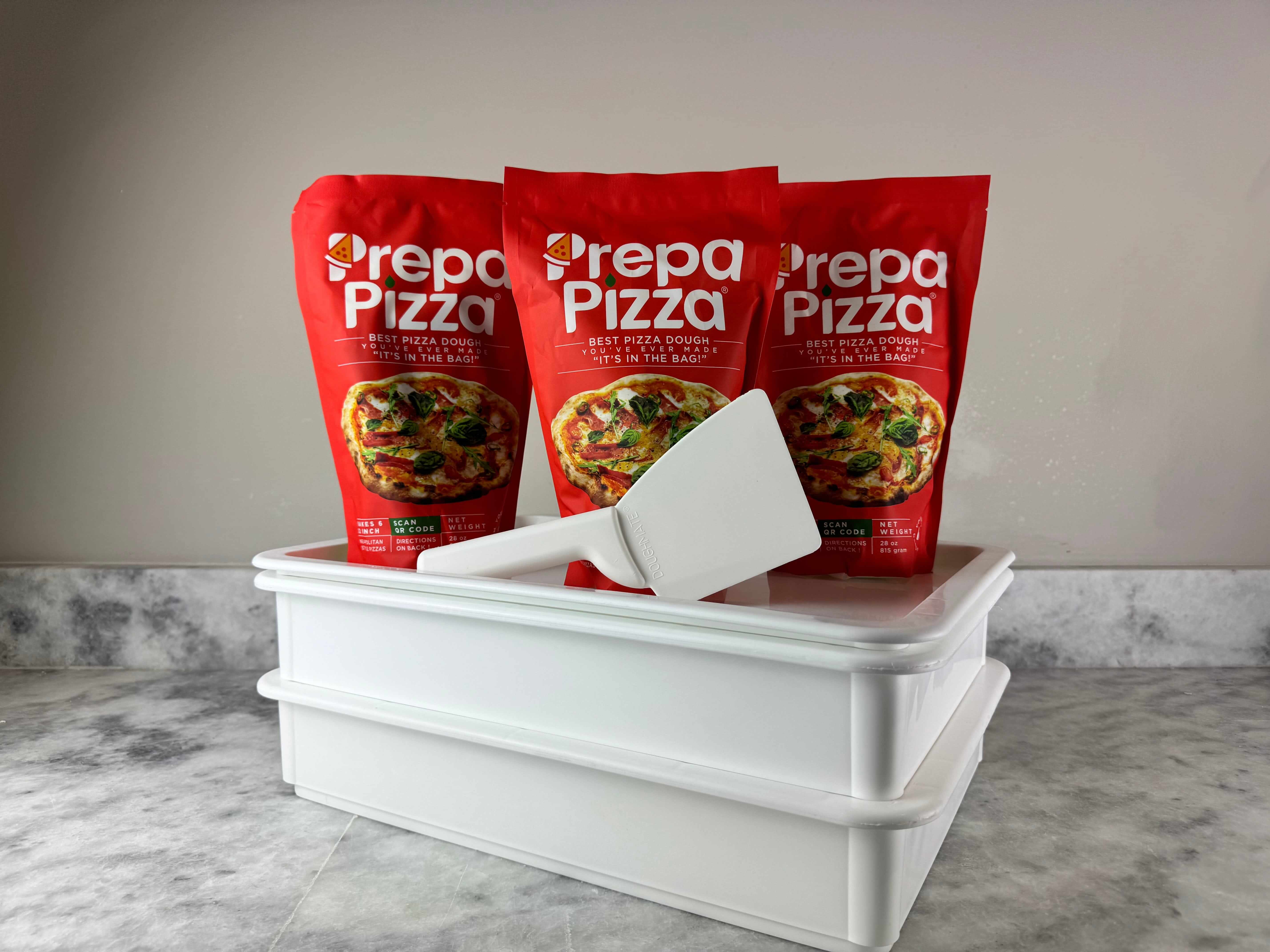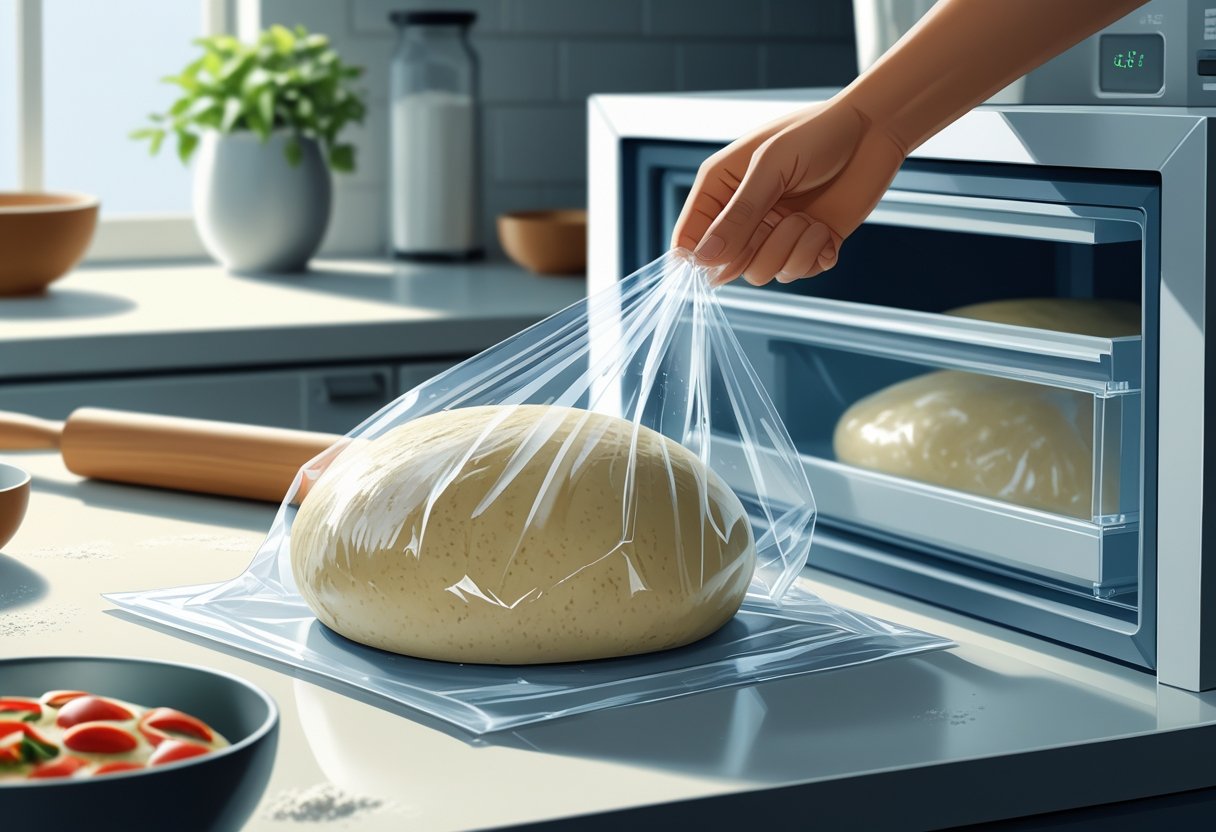
Can You Freeze Pizza Dough Safely and Effectively Explained
Yes, you can freeze pizza dough, and doing so is a convenient way to have fresh dough ready whenever you want to make pizza at home. If you’re looking to skip the prep without sacrificing quality, Prepa Pizza offers premium premade dough that you can freeze and use at your convenience. Their dough is made with high-quality ingredients to ensure a restaurant-level product every time you bake. You can check out Prepa Pizza’s dough kit for an easy, reliable option that fits perfectly into your freezer and schedule.
Freezing pizza dough doesn’t just save time; it helps maintain the dough’s freshness and texture when done correctly. By freezing Prepa Pizza’s premium dough, you get the benefit of a consistent rise and great flavor without the wait. Whether you’re preparing for a weeknight meal or last-minute guests, knowing how to freeze and thaw your dough properly means you always have a solid base for your homemade pizza. Explore Prepa Pizza’s premade dough kit for a hassle-free start to your pizza nights.
Can You Freeze Pizza Dough?
Freezing pizza dough is a practical way to keep homemade pizza dough ready without the need to prepare it fresh each time. Using premade dough like Prepa Pizza’s premium, restaurant-quality dough lets you enjoy consistent results with less effort. Their dough kits are ideal for freezing because they maintain texture and flavor even after storage.
Whether you’re freezing your own dough or using Prepa Pizza’s product, understanding the benefits and necessary precautions will help you get the best quality once thawed.
Key Benefits of Freezing Pizza Dough
Freezing pizza dough saves you significant time, allowing you to prepare pizzas quickly on demand. It helps reduce waste by preserving extra dough that might otherwise spoil. When frozen correctly, your dough retains its elasticity, texture, and flavor.
Using Prepa Pizza premade dough, which is made from high-quality ingredients, ensures the dough performs well after freezing. You can freeze single portions, making it easy to thaw just what you need. This convenience means less stress around busy schedules or spontaneous pizza nights.
Additionally, frozen dough can develop better flavor through a slow fermentation process when thawed, enhancing your homemade pizza experience.
Considerations Before Freezing Dough
Proper handling before freezing is crucial to maintain dough quality. Freeze pizza dough before the second rise (or proofing) to keep its structure intact and prevent over-fermentation. Divide dough into portions, wrap tightly to avoid freezer burn, and store in airtight containers or vacuum-sealed bags.
Label your dough with the freezing date. Typically, dough keeps well for up to three months in the freezer without compromising results. Avoid freezing dough that has fully proofed to prevent texture changes.
When ready to use, thaw dough slowly in the refrigerator for 8-12 hours. Allow it to come to room temperature before shaping to ensure elasticity. Following these steps with Prepa Pizza’s dough maintains optimal freshness and bake quality.
For detailed instructions on freezing and thawing dough, see how to freeze pizza dough properly.
When to Freeze Pizza Dough
Freezing pizza dough at the right stage impacts its texture, flavor, and rise. Timing your freeze affects how well your dough responds to thawing and baking later. Whether you’re using a pizza dough recipe or ready-made dough like Prepa Pizza’s premium dough kit, knowing when to freeze helps maintain quality.
Prepa Pizza offers restaurant-quality premade dough made from quality ingredients, designed to freeze well and deliver consistent results. You can learn more about their Prepa Pizza dough kit, which is ideal for freezing and easy pizza preparation at home.
Best Time During Dough Preparation
The optimal time to freeze pizza dough is after the first rise but before shaping into balls. This means you knead the dough, let it undergo the initial fermentation, then divide it into portions. At this stage, freezing halts yeast activity but preserves the dough’s structure.
Freezing dough balls individually helps you store and thaw only what you need, reducing waste. With Prepa Pizza's dough, this process is streamlined since it's pre-portioned and prepared for freezing.
Avoid freezing dough before any rise, as this can damage gluten development and alter texture. Likewise, freezing after the final proof can make the dough dense and less elastic once thawed.
Impact of Yeast and Fermentation
Yeast activity slows or stops once dough is frozen, which pauses fermentation. Freezing after cold fermentation ensures the dough has developed flavor but hasn’t overproofed. This stage maximizes texture and taste after thawing.
If you freeze dough too early, yeast won't have fully developed flavor compounds, resulting in bland pizza. Freeze too late, and the yeast may die or over-ferment, causing poor rise and flavor loss.
Prepa Pizza’s dough benefits from controlled fermentation before freezing, which maintains yeast viability and dough elasticity. You’ll get better oven spring and crust texture by respecting this balance between yeast activity and fermentation stage when freezing.
How to Freeze Pizza Dough Properly
Freezing pizza dough requires attention to timing and storage to preserve texture and flavor. Whether you use Prepa Pizza’s premium premade dough or your own batch, proper preparation ensures your dough stays fresh and ready for your next pizza night.
Using airtight packaging like a freezer bag and freezing dough before its second rise are key to maintaining quality. You can choose to freeze dough balls or shaped crusts depending on how you plan to use them later.
Step-by-Step Freezing Process
Start by dividing your dough into individual portions, especially if you've purchased Prepa Pizza’s premade dough kit. Lightly coat each portion with olive oil to prevent sticking.
Place each dough ball on a baking sheet lined with parchment paper. Freeze them uncovered for 2-3 hours until firm to avoid sticking when you transfer them.
Once firm, seal the dough balls tightly in freezer bags, pressing out excess air to prevent freezer burn. Label each bag with the date to track freshness—pizza dough typically lasts up to 3 months in the freezer.
When ready to use, thaw dough overnight in the refrigerator or at room temperature for 1-2 hours. Avoid thawing in the microwave, as this can kill yeast and affect rising.
Choosing Between Dough Balls and Shaped Crusts
You can freeze dough as simple balls or pre-shaped pizza crusts depending on your needs. Dough balls are versatile and allow for shaping just before baking, preserving more natural texture.
Freezing shaped crusts saves time later but requires careful handling to avoid drying out. Wrap pre-shaped crusts tightly in plastic wrap before placing them in freezer bags, ensuring no air exposure.
If you choose to freeze shaped crusts from Prepa Pizza’s dough, keep in mind that the crust may require shorter baking times after thawing. This method works well if you want quick prep for busy nights.
Both methods benefit from sealing the dough properly in freezer bags designed to handle moisture and air. This step keeps your frozen pizza dough flavorful and ready-to-bake at your convenience.
For premium frozen dough, explore Prepa Pizza’s quality Premade Dough Kit to simplify your pizza preparation.
Thawing and Using Frozen Pizza Dough
To get the best results from frozen pizza dough, you need to thaw it carefully and prepare it properly before baking. Proper thawing preserves the dough’s texture and yeast activity, while correct handling after thawing ensures a crust that’s both airy and chewy. Prepa Pizza offers premium quality premade dough that simplifies this process and guarantees consistent results. You can find their Prepa Pizza Dough Kit designed to meet all your homemade pizza needs.
Thawing Techniques for Best Results
Frozen pizza dough should be thawed slowly to keep its texture and flavor intact. The best way is to let it thaw in the refrigerator overnight, usually 8-12 hours. This gentle thaw allows the dough to maintain its yeast activity and gluten structure.
If you need it faster, place the dough in a sealed plastic bag and submerge it in cold water, changing the water every 30 minutes. Avoid microwaving unless absolutely necessary, as uneven heat can kill the yeast and alter texture.
After thawing, the dough may need to sit at room temperature for 30-60 minutes before shaping. This relaxes the gluten, making it easier to stretch. Prepa Pizza’s dough responds well to these methods, maintaining a fresh, pliable consistency through proper thawing.
Preparing Dough for Baking
Once thawed, lightly flour your work surface and gently knead the dough to redistribute yeast and even out any bubbles. Handle it with care to avoid deflating the air pockets that contribute to a light crust.
Shape the dough into your desired size and thickness, then let it rise again for 30-60 minutes. This second rise is essential to restore the dough’s volume and improve texture before baking.
Use high-quality toppings and a hot oven, ideally above 475°F (245°C), to bake your pizza. With Prepa Pizza’s premium dough and proper preparation, you ensure a crust that’s crispy on the edges and soft inside, suitable for restaurant-quality homemade pizza.
Storage Tips and Shelf Life of Frozen Dough
Proper storage is essential to maintain the quality of frozen pizza dough and ensure it performs well when you bake. Using the right methods and knowing how long dough will last helps you enjoy fresh, restaurant-quality pizza anytime. Prepa Pizza offers premium premade dough made with quality ingredients that freeze well and keep their texture and flavor intact during storage. You can find their Prepa Pizza Dough Kit for easy access to high-quality dough ready for freezing.
Optimal Storage Methods
When freezing pizza dough, start by portioning it into individual servings if you plan to use it in batches. Lightly coat the dough surface with olive oil to prevent sticking and maintain moisture. Then, place the dough in airtight freezer bags and remove as much air as possible before sealing to avoid freezer burn.
Label each bag with the date before placing it flat in the freezer to allow for quick thawing later. Storing dough flat rather than in a ball helps it freeze more evenly. Freezing the dough soon after mixing and allowing it to rise slightly before freezing will help maintain its texture.
How Long Frozen Pizza Dough Lasts
Frozen pizza dough typically retains its best quality for up to 3 months when stored correctly in sealed freezer bags. Beyond this period, it can still be safe to use but may start losing elasticity and flavor.
Using Prepa Pizza’s premium dough extends the usable life because of its high-quality ingredients and consistent preparation. Always thaw frozen dough gradually in the refrigerator overnight rather than at room temperature to preserve its texture and prevent spoilage.
If you notice off smells or discoloration upon thawing, discard the dough. Keeping your dough properly stored within this timeframe ensures you get a fresh, bubbly crust every time.
Frequently Asked Questions
Using Prepa Pizza’s premade dough gives you a consistent base made from quality ingredients, designed to deliver a restaurant-level product. You can freeze this dough to extend its shelf life and enjoy fresh pizza whenever you want.
Freezing pizza dough properly preserves its texture and flavor, but timing and thawing methods are important to maintain quality over time.
How long can pizza dough be stored in the freezer?
You can store pizza dough in the freezer for up to 3 months without significant loss of quality. Beyond this period, the dough may start to develop freezer burn or off flavors. For best results, use airtight packaging to protect your dough.
Should pizza dough be frozen before or after the rising process?
Freezing dough after its first rise is generally recommended. Prepa Pizza’s premade dough is ready to freeze after shaping into balls and allowing the initial fermentation. This process helps preserve yeast activity and dough texture.
Is it possible to freeze pizza dough that contains yeast?
Yes, pizza dough containing yeast freezes well. The yeast goes dormant in the cold and reactivates during thawing and proofing. Prepa Pizza’s dough uses yeast that withstands freezing without compromising the final product's rise and flavor.
Does freezing affect the quality of pizza dough after it has risen?
Freezing can slightly change dough texture, but if done correctly, the impact is minimal. Dough that’s frozen after rising, like Prepa Pizza’s, tends to retain its airiness and elasticity when thawed properly. Avoid refreezing to prevent degradation.
What is the best way to thaw frozen pizza dough?
Thaw pizza dough slowly in the refrigerator for 12 to 24 hours. After thawing, let the dough come to room temperature and rise again for about an hour before use. This process ensures optimal texture and baking performance from your Prepa Pizza dough.
Are there any special considerations when freezing store-bought pizza dough like Trader Joe's?
While this article focuses on Prepa Pizza’s dough, note that store-bought dough varies in yeast content and hydration, affecting freeze-ability. Prepa Pizza’s premium dough is formulated for freezing with consistent results, making it more reliable than many generic store-bought options. For best outcomes, follow packaging guidelines closely.




